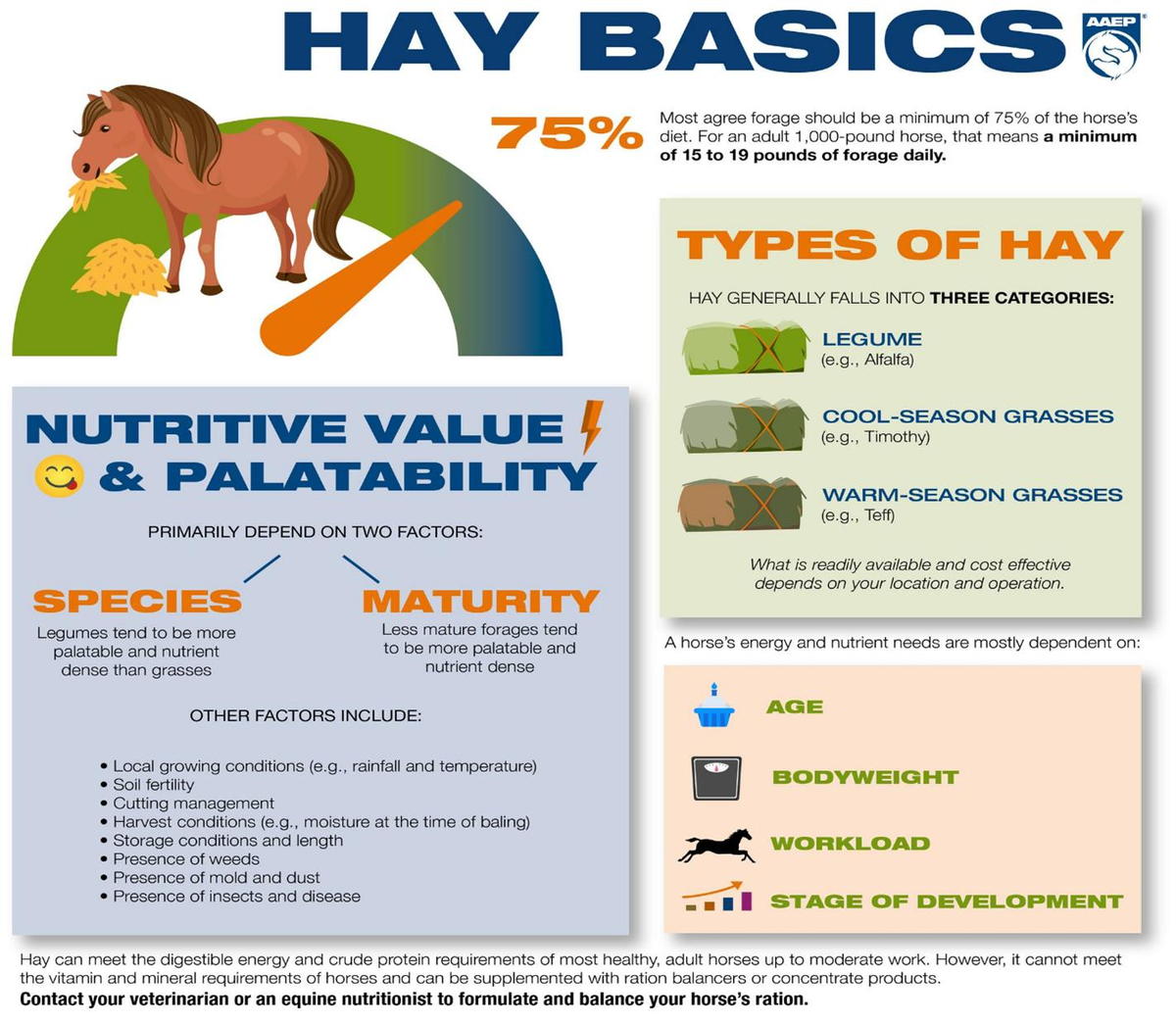Hay 101
- posted: Apr. 15, 2022
While we are all enjoying spring days and lush green pasture, the transition from winter hay to spring grass should be planned carefully to mitigate any health risks to your horse. In other words — just because your equine friend is not obese or suffering from a nutritionally related disease, doesn’t mean you should just forget about hay entirely and let your horse eat their fill of spring grass.
Feeding high-quality hay is a good way to satisfy a horse’s urge to chew when they can’t graze and provide essential nutrients at the same time. A mature horse will eat 2-2.5% of its body weight per day; roughage should contribute to at least half of this percentage, but most agree forage should be a minimum of 75% of the horse's diet. This said, please remember that not all horses are made equal, so a horse's total nutritional requirements will ultimately depend on the individual's age, stage of development, metabolism and workload.
Take-home message: Before making any changes to your horse’s diet this spring, consult your veterinarian to determine your equine friend’s current weight/body condition score and to formulate a balanced and nutritious ration that meets your horse’s specific nutritional needs!

Location
Find us on the map
Browns Summit Location
5373 NC Hwy 150
Browns Summit, NC 27214, United States

